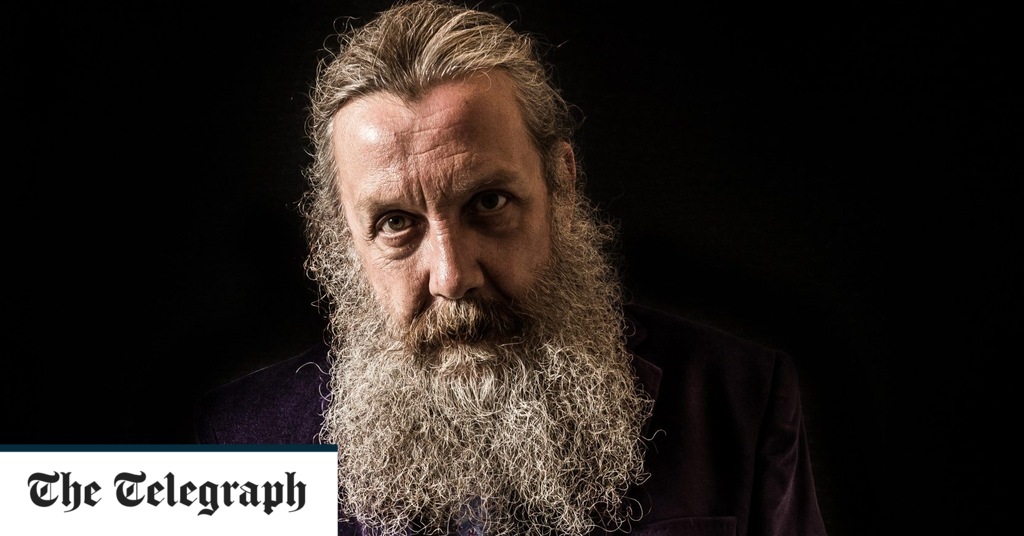After four decades in the comic book industry, Alan Moore is relishing being in the world of literary publishing. “I’m having a very good time of it,” says Moore, whose debut collection of short stories, Illuminations, is just out in paperback.
He says that his publisher, Bloomsbury, “respect my decisions and opinions. And I own my own work. It doesn’t sound like a lot if you’re used to traditional grown-up publishing, but it means an awful lot if you’re used to the comic books industry. It does make me wish that I’d maybe gone into writing prose fiction back in the late Seventies.”
…
Talking to me over Zoom, the 69-year-old Moore – a hirsute figure whose aesthetic might best be described as WFH Gandalf – insists that he has formally retired from writing comics now, despite the challenges that prose fiction brings.
The stories in Illuminations are in equal parts weird, funny and exhilarating, but what stands out – whether he’s describing an apocalyptic battle between angels and demons in the skies above Bedford, or the lovemaking of two disembodied brains in the moments after the creation of the universe – is his visual impact of his prose.
“I’ve always had, I think, a fairly decent visual imagination, and when I was working in comics the visual descriptions would be going into the lengthy notes that I was writing just for the artist.”
The centrepiece of Illuminations is a long story on the theme of the decline of the comic book industry. His objection is to “the gentrification of comics that happened post-Watchmen: that neighbourhood has been lifted out of the reach of its original inhabitants” – i.e. children.
…
The strength of Moore’s opinions is belied by their matter-of-fact delivery in a gentle Northampton accent. The son of a brewery worker, he was brought up in The Boroughs, “the most impoverished area of Northampton”.
Moore says that his “values system was formed in The Boroughs”: “although it was destitute there was an astonishing sense of community – nobody would rob anyone else because nobody else had anything. There was a kind of commonality.” In the 1970s he worked in underground comics and music papers, and those egalitarian values were nourished by the counterculture.
…
He’s now working on a series of fantasy novels set in mid-20th-century Britain. “Fantasy these days seems to have been boiled down to a kind of JRR Tolkein, George RR Martin world of warriors and dragons and, for some reason, dwarves. The fantasy books that inspire me are things like Mervyn Peake’s Gormenghast trilogy, which is actually about the real world in some ways, the changing nature of British society.
“Fantasy has no restrictions whatsoever, so it’s a bit lame to be constantly hitting the same note on the piano. Let’s have fantastic visions that nobody has ever seen before – and lay off people of restricted height for a change.”

